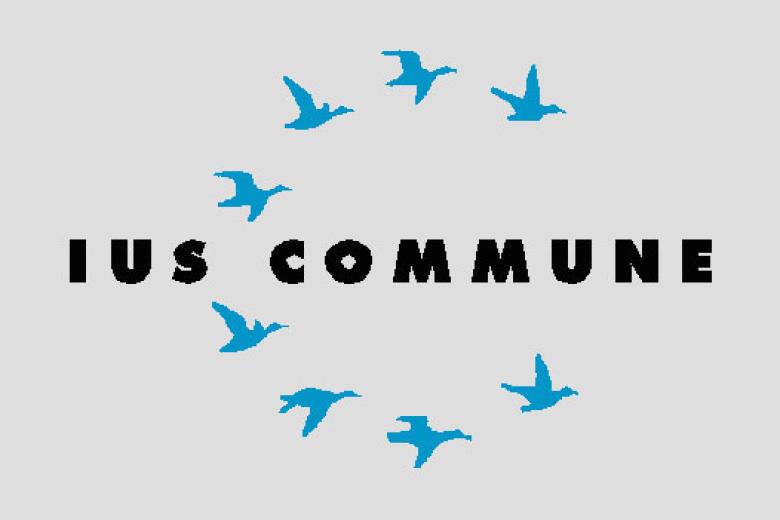Student-Edited Law Reviews and the Development of Legal Science
We Write to be Read, should always resonate in the mind of authors of research papers. The contents of Student-Edited Law Reviews (SL Reviews) is decided by students. These reviews offer a forum for outstanding research papers by law students. SL Reviews have strengths, while they face challenges and opportunities. They can serve as a tool for the new generation of scholars, for those who will engage in the development of legal science.
SL Reviews have two evident strengths. A first strength is that they offer a forum for students to express their legal ideas. Law is a social science that is subject to change. Students see change from a unique and fresh perspective that can challenge uncontested dogmas, hence inviting for the elaboration of specific lines of argumentation. Voicing those arguments should not always wait until law studies are completed. Everyone can benefit by exploring change from a law student perspective. This has been acknowledged in different jurisdictions across the globe, with the proliferation of SL Reviews in the USA. In Europe the number of SL Reviews is growing, confirming that more forums have open and hence more student views and approaches are being heard. A second strength is that SL Reviews offer a laboratory for academic writing. Academic writing is an art. It is like playing the violin. Virtuosos start to play violin before adolescence. The same should happen with academic legal writing. The earlier students start to engage in this type of writing, the sooner they will gain the needed skills. SL Reviews offer a laboratory to actively write and to actively edit. Students can find in a SL Review a place to learn to build a legal argument; to analyse a court decision or a piece of legislation; to engage with the existing literature; to contest doctrines, viewpoints, and conclusions; and to learn to refer to sources, their provenance, their value, and their need when building a sound and valid argument. When editing, students learn to reproduce the “experiment” by the author. Students can use the laboratory both to learn on the substance and the form of scholarly writing. They learn by doing.
SL Reviews face numerous challenges. A first challenge relates to continuity. Creating a review is hard, establishing a review is even harder. Establishing requires continuity, survival of the founders. SL Reviews are especially exposed to this challenge, since student editors tend to graduate on time. There is a need to seed the review, to see it grow. Students need to outreach to new editors, those who will learn the trade, develop an editorial line, and help keep the review alive. The key is to see editors as trustees of the review: they are there to preserve the review for future generations. Another challenge relates to the quality of the review. Richard A. Posner, amongst others, elaborated extensively on this challenge. Editors must be conscious of these fora, keeping standards high. They should study and develop their skills, both when being authors and editors. They must dissect a submission when assessing its potential place in the review. They must study the topic at hand, and go to the library and the leading literature. They should reproduce the path of the author, by applying the methodology and by analysing the references. Students must outreach to experts on the field, looking for the needed expertise amongst faculty members. Creating a board of advisors can be especially instrumental, since students are not alone in this quest for academic excellence.
SL Reviews face opportunities. A significant opportunity lies on the malleability of these reviews. Law reviews–of every type–are much more than repositories of research papers. Law reviews ought to be a to-go-point for all law related matters. SL Reviews could include a multiplicity of sections, beyond the classical articles and case notes. For example, they could include reviews of study materials, where student perspectives can be very useful to alert readership on the contribution of a specific material for the teaching of law. These reviews could also include interviews to experts on the field, again from a student perspective. These interviews could be preserved for future generations of students who will be able to discover how law was perceived by the leading actors at a specific time and space. If dealing with a digital review, interviews could be also in video format. SL Reviews could also include a section on legal pedagogy, inviting student tutors to share accounts of their teaching experiences, including pitfalls and best practices.
Students will form the new generation of scholars and are therefore fundamental actors of the legal community. SL Reviews–it can be concluded–invite authors and editors to be actively involved in the shaping of that community.
By Agustín Parise.
A. Parise
Agustín Parise (Buenos Aires, Argentina) is Associate Professor of Law at the Faculty of Law of Maastricht University. He received his degrees of LL.B. (abogado) and LL.D. (doctor en derecho) at Universidad de Buenos Aires (Argentina), where he was Lecturer in Legal History during 2001-2005. He received his degree of LL.M. at Louisiana State University Law Center (USA), where he was Research Associate at the Center of Civil Law Studies during 2006-2010.

-
Known Unknowns: A Macro-Meso-Micro Socioeconomic Approach to Uncover the Dark Number of Victims of Human Trafficking for the Purpose of Labour Exploitation
These last few weeks, Minister Paul of Social Affairs and Employment of the outgoing cabinet has been in the news for unilaterally deciding no longer to gradually phase out the Dutch regulation that allows temporary employment agencies to deduct a quarter of the minimum wage from migrant workers...

-
The Decennial Jubilee of Ius Commune in the Making
On 27 November 2025, the tenth edition of the workshop series on Ius Commune in the Making took place within the 29th Ius Commune Conference organised by the University of Amsterdam. This blog entry reproduces a public address by one of the members of the organising committee of that workshop series...

-
Overriding Mandatory Rules in International Arbitration: Balancing Business Freedom and State Interests
Imagine two companies from different countries enter a business deal. They pick a neutral country’s law to govern their contract and agree to arbitrate any disputes, thinking they can sidestep each other’s national courts. But what if one country’s law absolutely prohibits something in the deal –...
